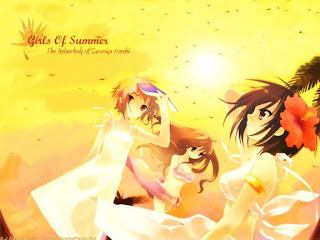Porn, Piracy and the Summer of Manga

.jpg) SOFT POWER HARD TRUTHS / Porn, piracy, summer of manga
SOFT POWER HARD TRUTHS / Porn, piracy, summer of mangaIn the annals of manga, a medium roughly 60 years old and a primary driver of Japan's pop culture juggernaut, the summer of 2010 has been revolutionary--though the season launched long before last month's brutal humidity simultaneously smothered my two hometowns, Tokyo and New York.
As reported earlier in this column, the sentencing in February of American manga collector Christopher Handley to six months in prison for possession of obscene materials (an Iowa court cited seven manga titles) sent ripples of anxiety through fans of Japanese pop culture worldwide.
Shortly thereafter, the Tokyo metropolitan government announced its proposal of legislation that would protect the welfare of children from violent or sexualized depictions of what it called "nonexistent youth" (read: drawings). The legislation sought to amend child welfare protection laws already in place in Tokyo and elsewhere in Japan.
Whether the events in Iowa and Tokyo were related remains debatable, but the proposed legislation was met by an unprecedented formal protest. A lengthy roster of otherwise reserved or even reclusive manga artists, including veterans Tetsuya Chiba, Fujiko Fujio A, Moto Hagio and Rumiko Takahashi, gathered for a press conference to deliver a petition and declare their opposition to the bill. This was followed by opposition from corporate IT heavyweights like Google, Yahoo and Rakuten, and members of the Japan P.E.N. Club, part of an international association of authors.
With suspicions rising nearly daily about the political motivations behind the proposal and its vague language and goals, its eventual rejection in June was hardly a surprise. Controversial archconservative Tokyo Gov. Shintaro Ishihara, a supporter of the bill (also a former novelist who in the past explored such taboo topics as incest and rape in his fiction and plays), even wondered aloud if the term "nonexistent youth" made people think the legislation was aimed at prohibiting ghosts.
Ishihara has vowed to redraft and resubmit the proposal as early as next month. And while many in the manga industry publicly breathed a sigh of relief when the bill was shot down, a number of artists, editors and translators later confided to me off the record that some sort of action must be taken to curtail the burgeoning number of erotic manga, especially those featuring very young-looking characters.
Meanwhile, arguably more ominous news darkened the manga industry this past spring: Manga sales are in a downward spiral, both in Japan and overseas. [more @ Yomiuri here; UPDATED @ 3:AM magazine]
.jpg)